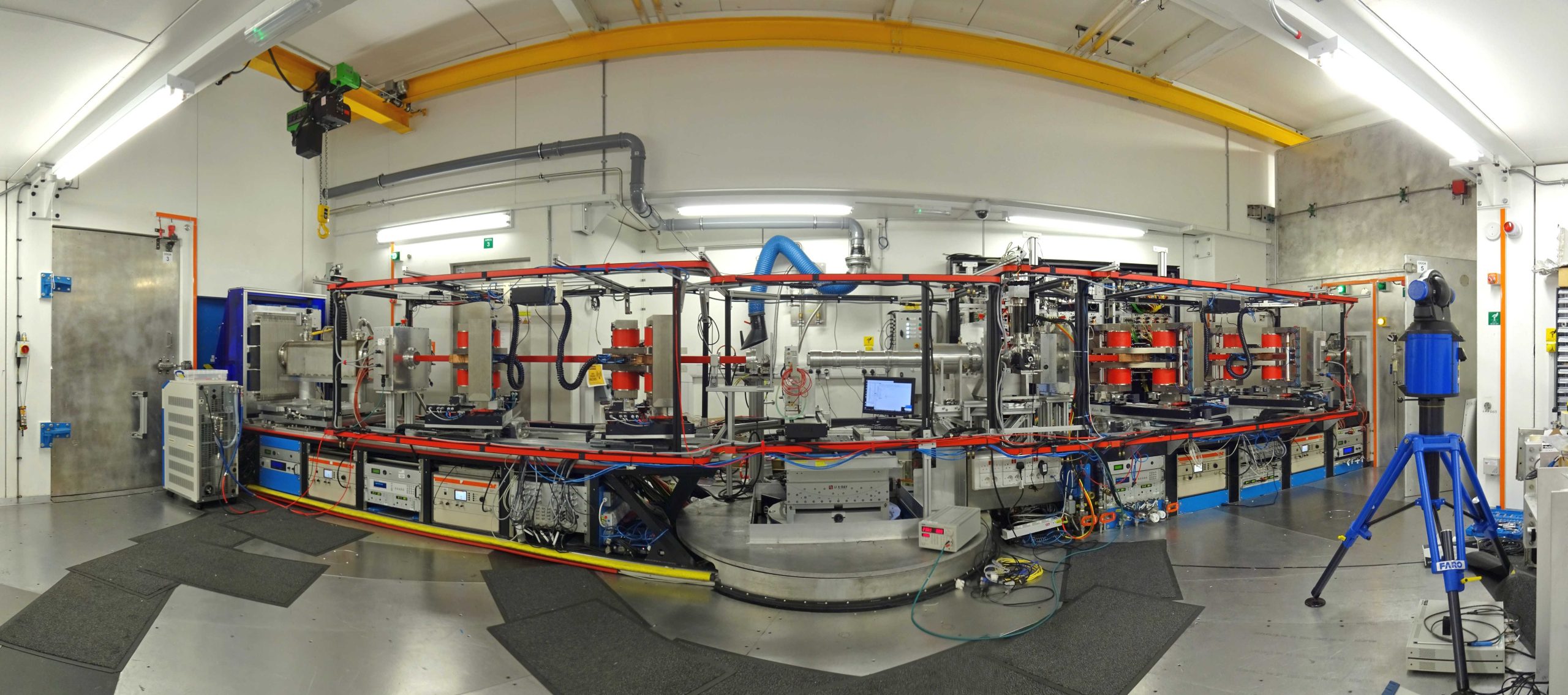Delft researchers show ‘spooky action at a distance’ in neutrons. Their finding could lead to novel insights into some of the most interesting materials studied today.
Larmor, the instrument in Oxford used to manipulate single neutrons with and show the spooky action. (Photo: ISIS)
Is that car a BMW or a Porsche? Is it red and does it weigh 1,200 kilograms? On the phone is Dr Ad van Well of the Reactor Institute Delft (RID). He is not interested in buying a car, he is trying to explain the fundamentals of the quantum mechanical behaviour of neutrons. Analogies abound when physicists try to explain quantum mechanics.
Van Well is commenting on a recent paper he wrote with colleagues from TU Delft, the USA, UK and Austria in the journal Nature Communication entitled Unveiling contextual realities by microscopically entangling a neutron. In the article, the scientists describe the experimental set-up which witnessed the quantum mechanical behaviour of neutrons.
The behaviour implies, amongst others, that one and the same neutron can be in different places at the same time; it can rotate left and right simultaneously; and it can have different energy levels. The state it is in depends on the way in which you measure it. Come again?
‘You may end up with a Porsche instead of a BMW’
This is difficult to understand, hence the analogy with the car. Normally a car would be either a BMW or a Porsche and it would have a distinct colour, red for instance. But in the quantum world it would all depend on the way in which you would assess things (or in quantum language: the textuality) . If you want to determine the make of a car and also its colour, you may assess the car to be a BMW. However, if you also want to know its weight you may end up with a Porsche.
A single neutron
Einstein didn’t believe these kind of stories and referred to ‘spooky action at a distance’. But for decades now physicists have widely accepted that this behaviour is real in the miniature world of particles and atoms. It was already demonstrated in atoms and electrons. “We now demonstrated this quantum behaviour within a single neutron”, says Van Well.
Van Well and his colleagues develop spin-echo instruments to do material research. They work a lot with neutrons. These particles are commonly used to peer inside materials. Because they are uncharged, they can penetrate deep into stuff; and because they involve relatively little energy they don’t destroy biological samples.
A top notch instrument to look inside materials was developed a few years ago by TU Delft researchers at RID. It is called Larmor and it is located at the ISIS neutron centre near Oxford. Larmor is a spin-echo instrument that fires neutrons at pieces of material and detects how the neutrons are scattered by the sample. This yields information about the material on a microscopic scale.
Entangling spin direction, energy level and location
With this TU Delft made instrument – or more accurately, new spin-manipulating devices the researchers attached to the Larmor instrument – the researchers were able to manipulate single neutrons and show the spooky action. They entangled spin direction, energy level and location. And just as with the BMW and the Porsche, the results they obtained depended on the way in which they performed the measurements.
This finding could lead to novel insights into some of the most interesting materials studied today, such as unconventional superconductors with strange metallic behaviour. Or so says a press release.
Van Well is not so sure whether the findings will be useful for any new applications any time soon though. “I know it says so in the press release. Who knows, one day … It is foremost a special discovery from a fundamental scientific point of view. It is one of the perks of working with theoretical physicists on neutron scattering. You get to witness crazy phenomena.”



Comments are closed.